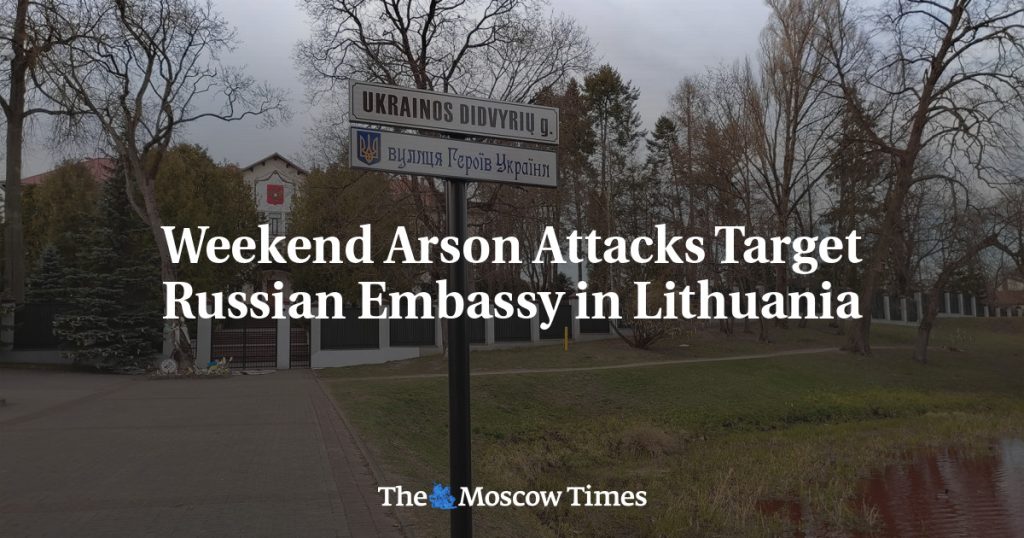The Russia’s Embassy in Lithuania was targeted with Molotov cocktails twice over the weekend, resulting in damage to the embassy wall in Vilnius. The incidents occurred early in the morning on both Sunday and Monday, with unidentified individuals throwing bottles filled with incendiary liquids. The suspects responsible for the attacks have not yet been identified, prompting an investigation to be launched into the destruction of property. This crime is punishable by up to five years in prison, and Russia’s Foreign Ministry has not commented on the incidents.
These attacks come at a time when Lithuania’s relations with Russia have reached new lows following Moscow’s invasion of Ukraine in February 2022. As a response to the ongoing conflict, Vilnius has taken measures to restrict travel and visas for Russian and Belarusian nationals. The country has closed its borders to Russians with Schengen Zone tourist visas and suspended the issuance of visas to individuals from Russia and Belarus. The tensions between Lithuania and Russia have escalated, leading to increased security concerns and actions against Russian interests in the country.
The repeated attacks on the Russian Embassy in Lithuania highlight the growing animosity between the two countries and the impact of Russia’s actions in Ukraine on neighboring nations. The use of Molotov cocktails in the assaults signifies a deliberate and violent act of protest or retaliation against Russia and its diplomatic presence in Lithuania. The incidents have raised concerns about security and potential further escalation of hostilities between the two countries, as well as the safety of diplomatic personnel and facilities in the region.
The lack of identification of the perpetrators behind the attacks adds to the mystery and uncertainty surrounding the incidents. The investigation into the destruction of property at the Russian Embassy in Vilnius is ongoing, with authorities working to determine who was responsible for the assaults. The nature of the attacks, carried out in the early hours of the morning, suggests a premeditated and coordinated effort to target the embassy and cause damage to the property. The motives behind the attacks remain unclear, but they are likely linked to the strained relations between Lithuania and Russia.
The damage inflicted on the embassy wall and the potential threat to diplomatic personnel and facilities underscore the seriousness of the situation and the need for a swift and thorough investigation. The attacks on the Russian Embassy in Lithuania have raised concerns about the safety and security of diplomatic missions in the country, as well as the broader implications for bilateral relations between Lithuania and Russia. The incidents serve as a stark reminder of the tensions and conflicts that continue to affect neighboring countries in the region, highlighting the fragility of international relations and the challenges faced in maintaining peace and stability.
In conclusion, the attacks on the Russian Embassy in Lithuania represent a troubling escalation of tensions and hostilities between the two countries in the aftermath of Russia’s invasion of Ukraine. The incidents, carried out with Molotov cocktails, have raised concerns about security, diplomatic relations, and the potential for further conflict. The ongoing investigation into the attacks will be crucial in identifying and holding accountable those responsible, as well as addressing the broader issues of security and stability in the region. The events serve as a sobering reminder of the complex and volatile nature of international relations, highlighting the need for diplomacy, dialogue, and cooperation to address conflicts and prevent further violence.















